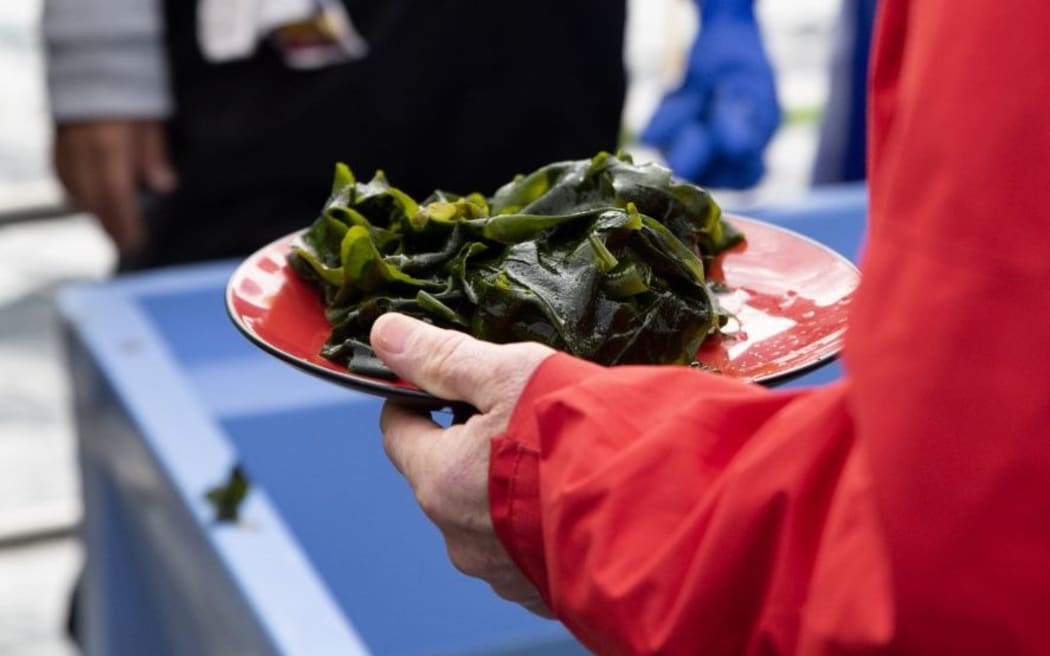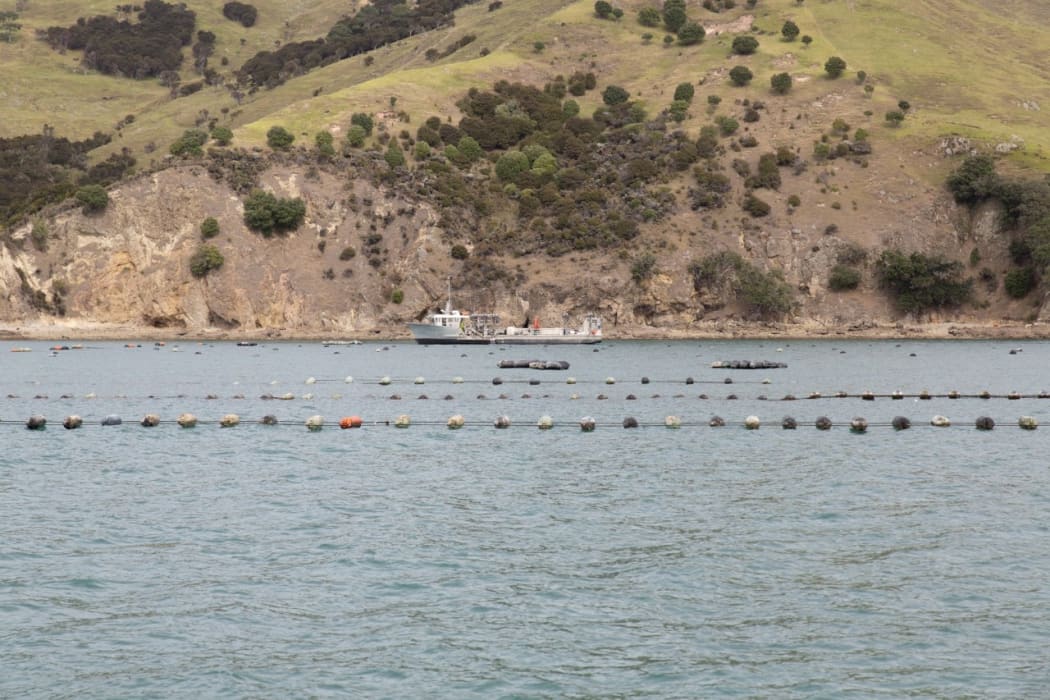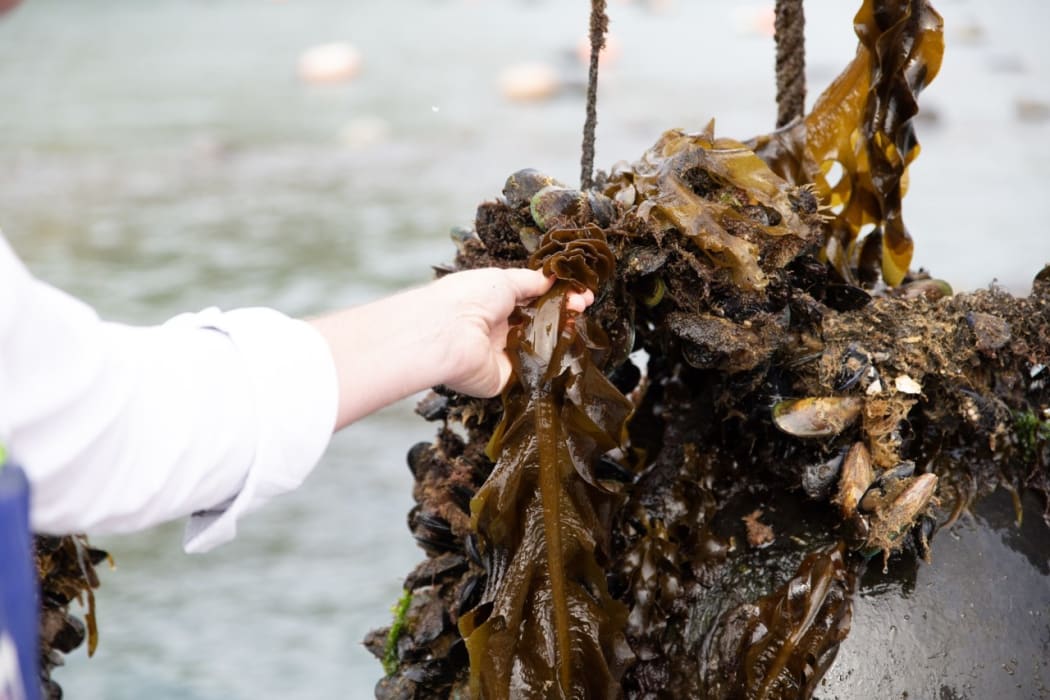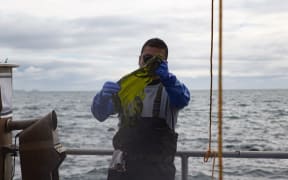A Coromandel company hopes to turn the 'gorse of the sea' into the country's next big export industry.
Residents dotted along the Coromandel coastline have long had a close connection to the sea and its traditional bounty, but Wakame Fresh are harvesting something else: Seaweed.
Wakame Fresh is receiving $75,000 from the government to investigate turning a type of pest seaweed into a commercial edible product for the international market.
After a short trip into the harbour near Coromandel Town, Wakame Fresh pull their boat alongside mussel lines and pull one up.
"This is Undaria," its director Lucas Evans said while handling a length of brown seaweed growing out of the clump of mussels.
"It's relatively small in this location but it does grow to one and a half metres, that sort of length."
Undaria, also known as wakame, is a pest which mussel farmers would usually cut off as a byproduct.

Wakame, or Undaria seaweed. Photo: RNZ / Tom Furley
It is widespread across the eastern and southern coastlines of New Zealand after coming from Asia onboard cargo ships in the 1980s.
"It's taken over," said Mr Evans.
"The policy up until I believe it was 2010 meant that it wasn't able to be accessed but changes have made it commercially viable, or viable to explore anyway."
Over the last seven years he and his business partner Lance Townsend have worked to partner with the local mussel industry, and last year exported the seaweed to Australia.
Now they have been given just over $75,000 from the government to look at the viability of the Japanese market, where edible seaweed is a diet staple.
"It's allowed us to kick off our project and understand some of the key elements around the feasibility of the sector in New Zealand. The next steps of course are to validate what we've anticipated and move into a production cycle to understand the metrics and see whether it truly is going to be a feasible approach for us here."
On board is the president of Japanese company Kataoka Corporation, Shoichiro Kataoka.
If it looks feasible, Wakame Fresh is expected to enter a commercial contract with Kataoka Corporation for commercial export.

Mussel lines commonly collect undaria on them. Photo: RNZ / Tom Furley
It is really good-quality wakame, Mr Kataoka said.
Japan's consumers use a lot of undaria but only 10 percent of the undaria consumed in Japan comes from within the country. The rest comes from China and Korea. Given the high quality of New Zealand undaria theres a huge market potential.
The funding is through the Government's Sustainable Food and Fibre Futures Fund with the condition that information gained through the project will be shared with the wider New Zealand seaweed industry.
This one, if proved to be successful, could have huge implications, Agriculture Minister Damien O'Connor said.

Wakame is a murky brown colour when in the sea, but turns a bright green when blanched. Photo: RNZ / Tom Furley
"We've done it in lots of other areas; we've turned a pest deer into an industry, taken mānuka that was cut down on farms for many, many years now into a valuable asset.
"If we can do that with a pest like undaria then I guess we've got unlimited opportunities."
On board the boat, the seaweed is cut up and blanched in hot, then cold water, where it turns from a muddy brown to a bright green.
A plate is passed around. The minister's verdict? No need to add salt.
"Its a nice weed, don't get rid of it."



